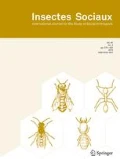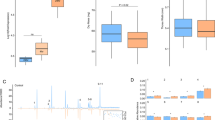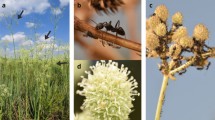Abstract.
Laboratory observations were conducted on four separate red imported fire ant, Solenopsis invicta, colonies that contained workers parasitized by the decapitating fly, Pseudacteon tricuspis. Parasitized S. invicta workers remained inside the nest during parasitoid larval development and left the nest approximately 8 – 10 hours before decapitation by the parasitoid. When parasitized ants left the nest, they were highly mobile, were responsive to tactile stimuli, and showed minimal defensive behavior. Ants ultimately entered into a grass thatch layer, where they were decapitated and the fly maggots pupariated. This study reveals that parasitized ants exhibit behaviors that are consistent with host manipulation to benefit survival of the parasitoid.
Similar content being viewed by others
Author information
Authors and Affiliations
Corresponding author
Additional information
Received 9 November 2006; revised 26 January 2007; accepted 7 February.
Rights and permissions
About this article
Cite this article
Henne, D.C., Johnson, S.J. Zombie fire ant workers: behavior controlled by decapitating fly parasitoids. Insect. Soc. 54, 150–153 (2007). https://doi.org/10.1007/s00040-007-0924-y
Published:
Issue Date:
DOI: https://doi.org/10.1007/s00040-007-0924-y




